Your Bird Feeder Could Be Attracting Rats – Keep Them Out of Your Yard With These Clever Tips
Rodents can be attracted to bird feeders, but you don't have to put up with it. Learn how to keep rats away from your backyard bird oasis.

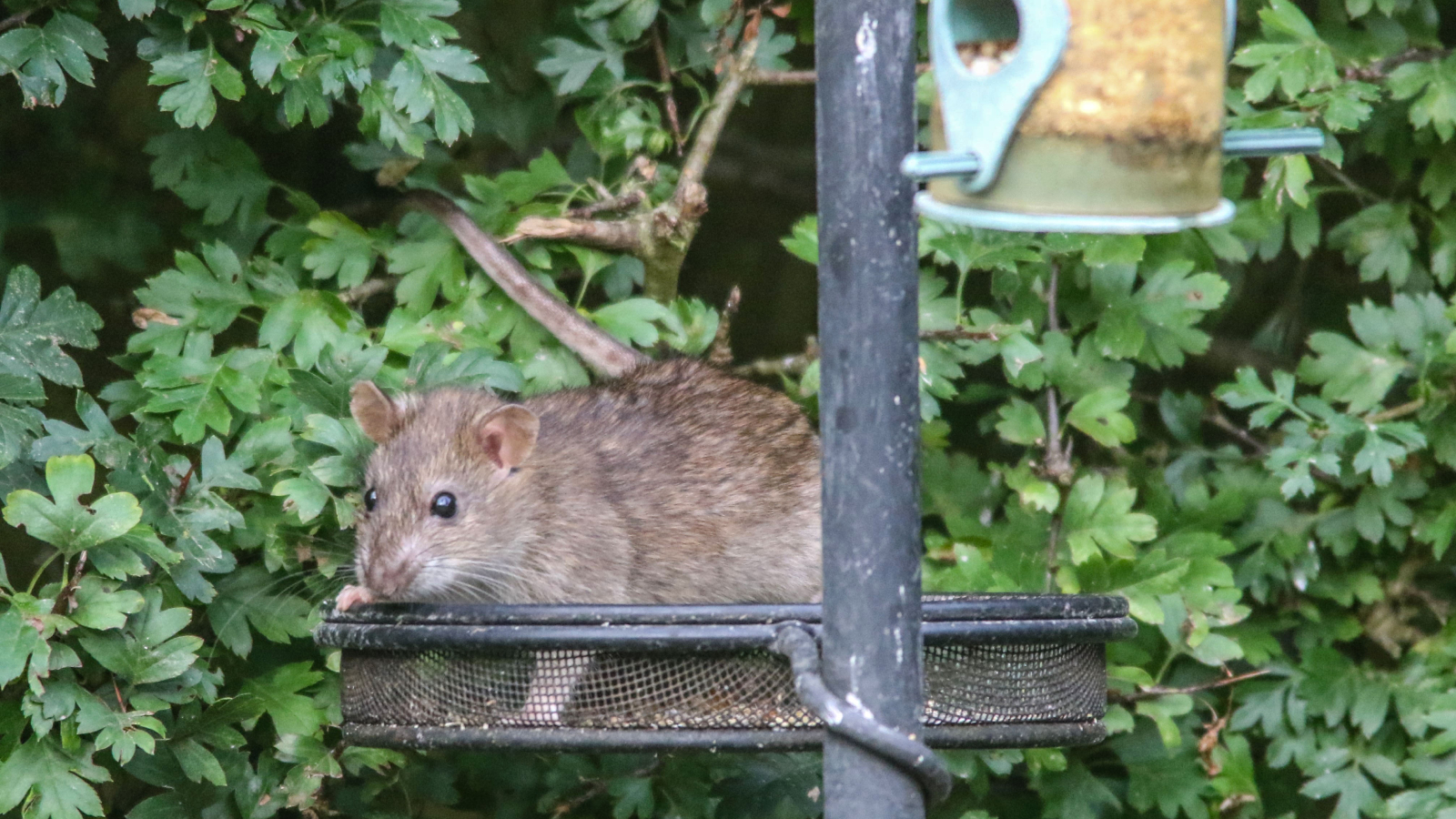
Sign up for the Gardening Know How newsletter today and receive a free copy of our e-book "How to Grow Delicious Tomatoes".
You are now subscribed
Your newsletter sign-up was successful
Bird feeders bring all kinds of wild birds to your yard to provide a lovely wildlife experience. But you may be wondering, do bird feeders attract rats?
In addition to the fun you can have bird watching from your kitchen window, birdsong is good for our wellbeing. Recent studies in psychiatry and neuroscience have shown that birdsong is associated with reduced symptoms of depression and anxiety, as well as boosted cognitive performance. Bringing more birds to your yard is a worthy goal, but sometimes bird feeder problems pop up.
Unsuspecting bird watchers might accidentally attract rats with their bird feeders. No one wants rats in their yard or home, so it is important to mitigate these issues as soon as possible. Keep reading to learn more about rats and bird feeders and what you can do to keep rodents at bay.
Why Are Rats Attracted to My Bird Feeder?
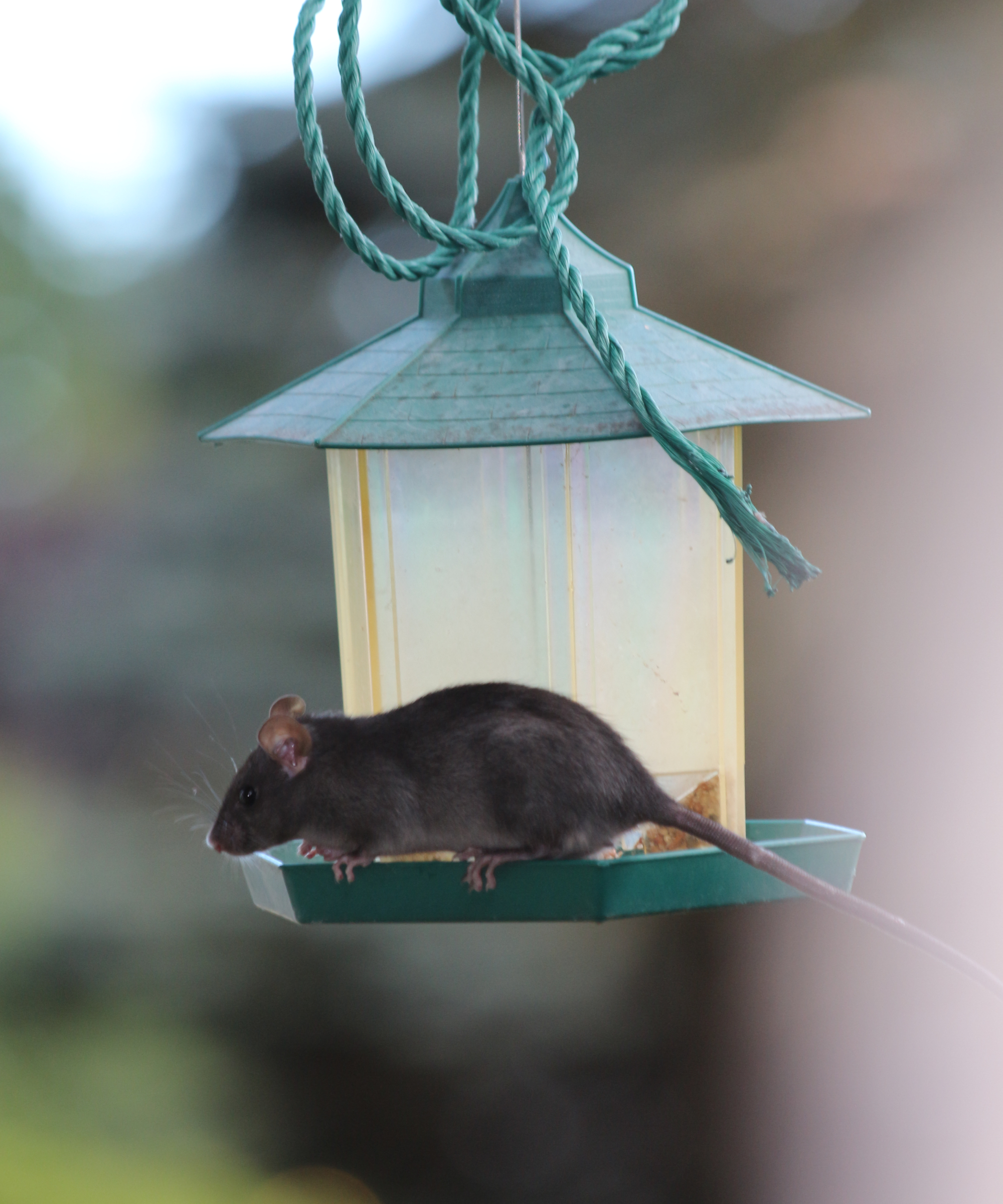
Rats are omnivorous rodents who live with and near humans, and they can infest any place where they have easy access to food and shelter. Rat control in city gardens is a common battle, but rats can become an problem in suburban gardens too. A nice meal of scattered bird seed that has fallen from your backyard feeder is enough to draw them into your yard.
Although their responsibility for the bubonic plague was somewhat overblown, rats do spread diseases to humans and it is important to manage your bird feeding to keep rats away.
Birdseed and suet can attract all kinds of rodents to your yard, but there are two common types of rats you might encounter around your bird feeders.
Norway rats (Rattus norvegicus) are also called brown rats or common rats. This widespread species was introduced to North American from Europe and is found in all 50 states. They are brown and their bodies are up to 11 inches (28 cm) long. Their tails are shorter than their bodies.
Sign up for the Gardening Know How newsletter today and receive a free copy of our e-book "How to Grow Delicious Tomatoes".
Black rats (Rattus rattus) are also called roof rats or ship rats. This species originated in the Indian subcontinent, but is now found all over the world. They have black fur and their bodies are 5 to 7 inches ( 12.7 cm to 17.8 cm) long. Their tail is longer than their body.
How to Keep Rats Away from Bird Feeders
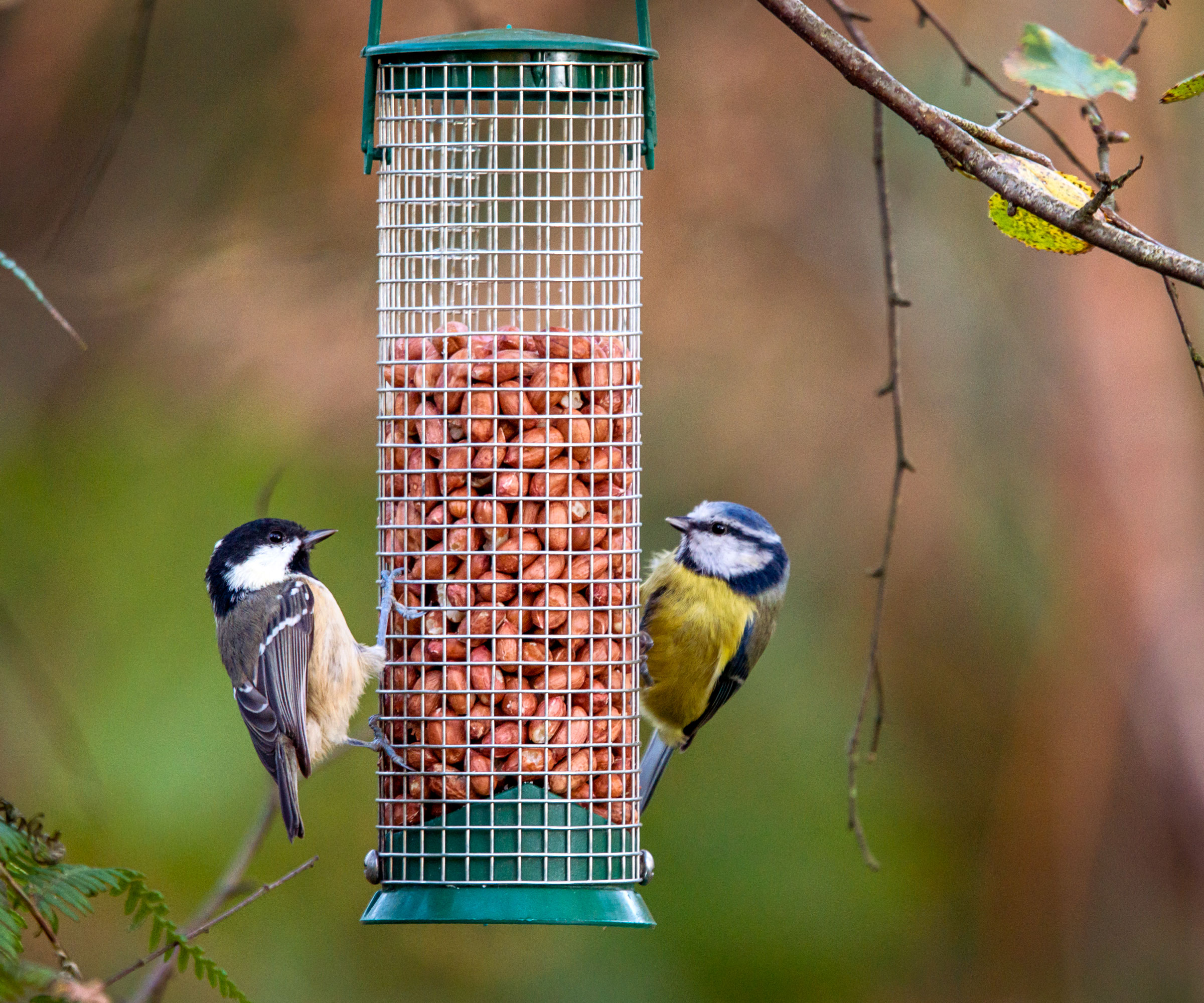
Luckily, there are a few simple ways to deter rats that might be snacking on your bird seed. A lot of methods to keep squirrels out of bird feeders work for rats, too. Combine methods to provide extra protection.
1. Hot Bird Seed
Bird seed that has been treated with hot chili pepper oil will keep rats and other rodents from staking a claim on your bird feeder. Birds are not affected by the capsaicin so they will continue to flock to your feeders.
In addition to being spicy, this bird seed from Wild Delight is also zero-waste and can be found on Amazon.
Be sure to thoroughly wash your hands after filling the bird feeder and avoid contact with your eyes and nose.
2. Pick the Right Feeder
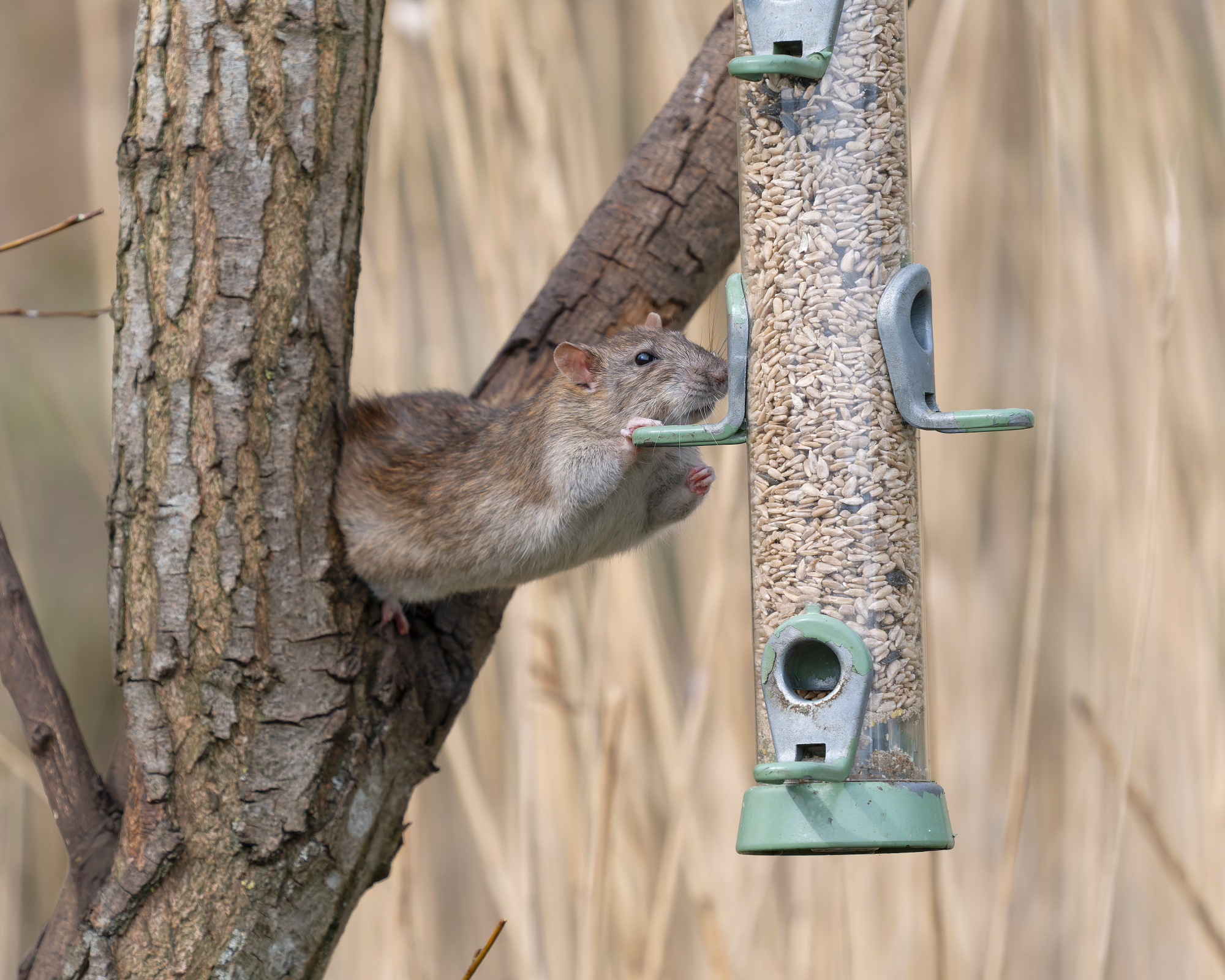
Rats are attracted to bird seed that has fallen on the ground and also tray style bird feeders. Choose a style of bird feeder that will attract birds while also reducing the amount of seeds that fall to the ground. You can find this clever no-spill bird feeder from Amazon.
Keep bird feeders 8-10 feet (2.4-3.04m) away from trees, shrubs, and structures to prevent rats and other rodents from jumping on to the bird feeder.
3. Proper Sanitation
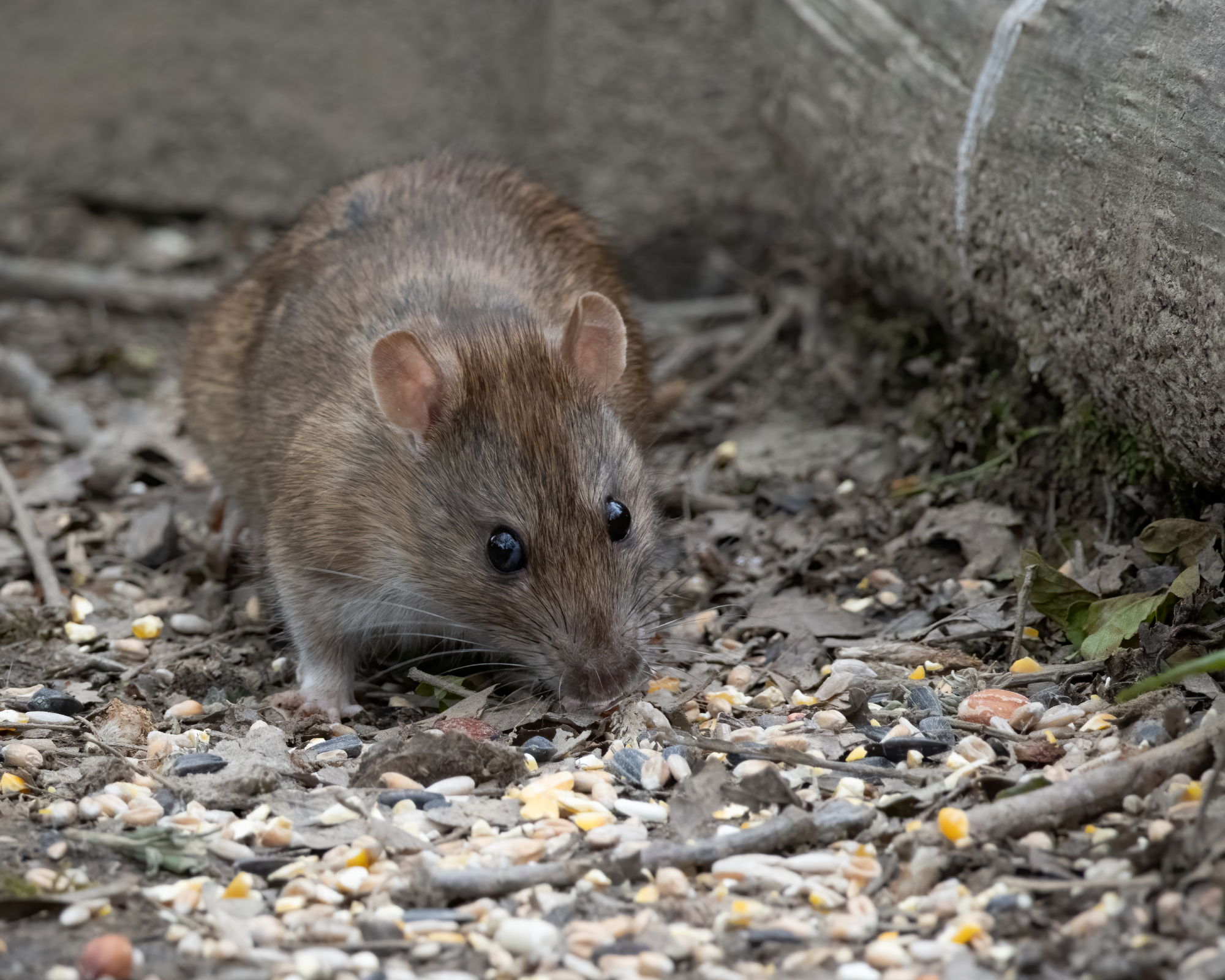
If you already have a bird feeder you like but seeds are falling on the ground, make a weekly chore of seed cleanup. Use a shop vacuum to suck up seeds easily. I know it is odd to vacuum your lawn, but sometimes it’s necessary!
An even simpler method that will make seed cleanup less intensive is to install a seed catcher below your existing bird feeder. This mesh seed catcher from Amazon is lightweight so it won’t drag down your bird feeder. Empty the seed catcher regularly so it does not become enticing to rats and other rodents. Seed catchers are also a great way to stop bird seed weeds growing under your feeder.
4. Extra Protection
To really make sure your bird feeder is rat proof, you may also want to add a baffle. Squirrel baffles keep rodents from being able to climb up the pole or shepherd's crook from which your bird feeder hangs. They will work to keep rats down too. You can find a sleek bird feeder baffle from Songbird Essentials on Amazon.
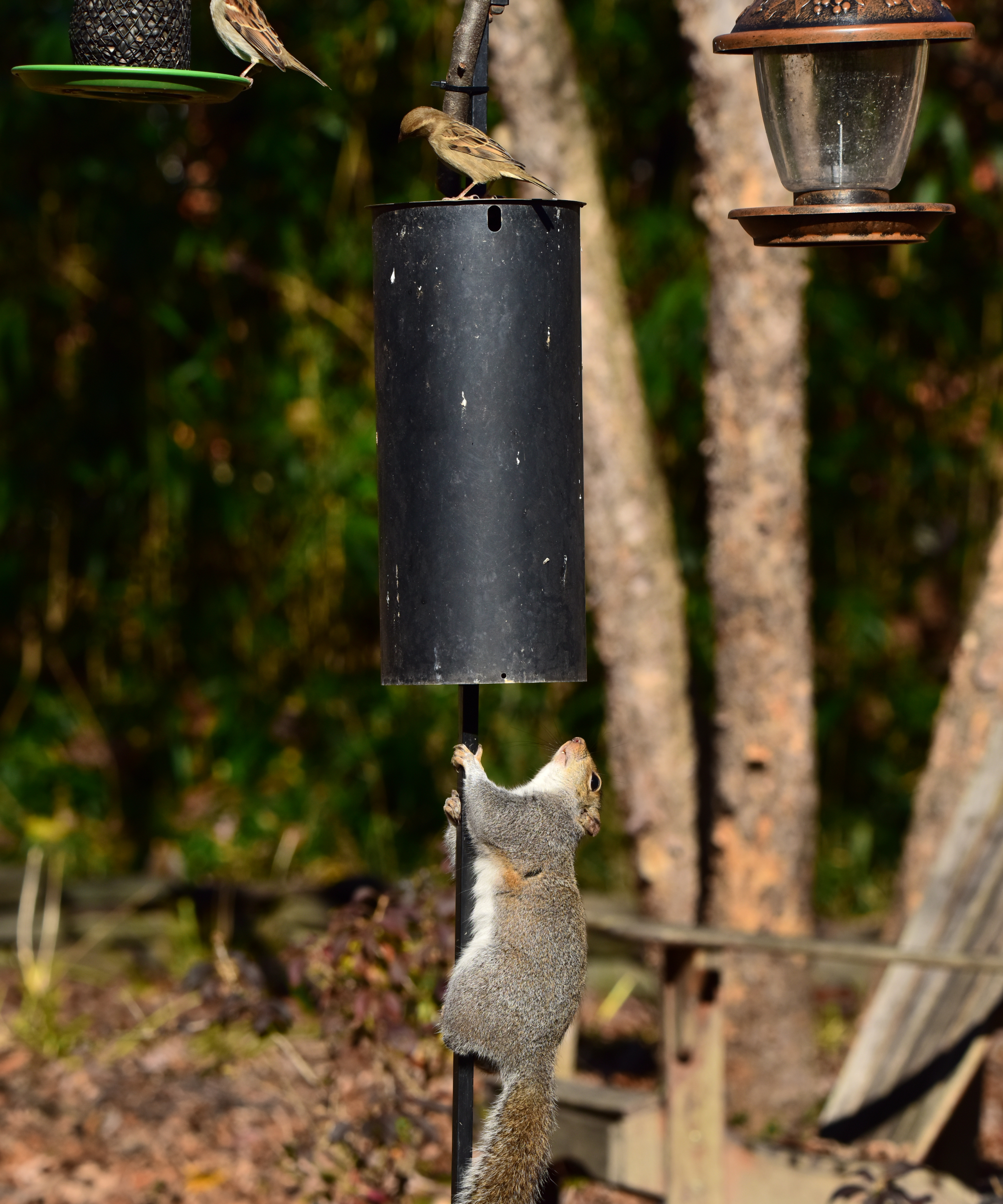
Combining good sanitation practices with rat deterrents will greatly reduce the likelihood of your bird feeder attracting rats. Hopefully these tips will keep your bird feeders rat free, so you can enjoy your backyard birds in peace.

Kathleen Walters joined Gardening Know How as a Content Editor in 2024, but she grew up helping her mom in the garden. She holds a bachelor’s degree in History from Miami University and a master’s degree in Public History from Wright State University. Before this, Kathleen worked for almost a decade as a Park Ranger with the National Park Service in Dayton, Ohio. The Huffman Prairie is one of her favorite places to explore native plants and get inspired. She has been working to turn her front yard into a pollinator garden.